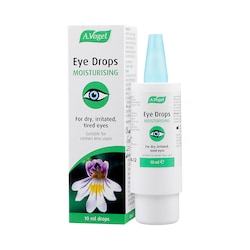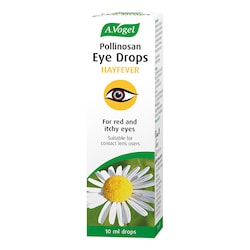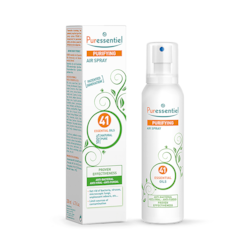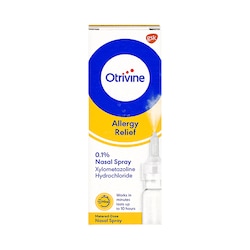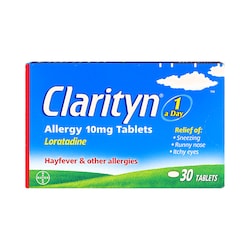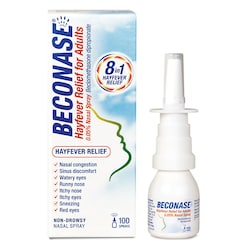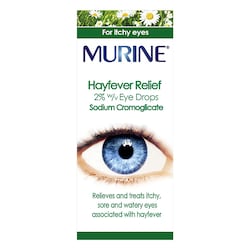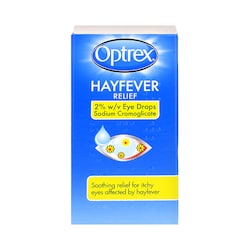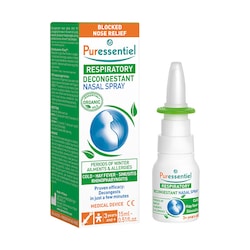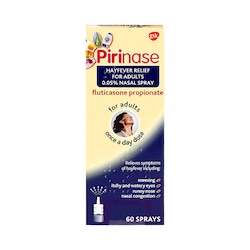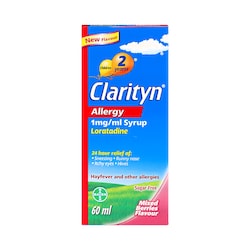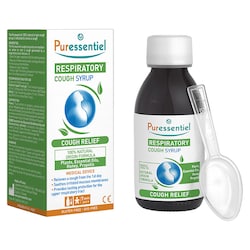15% off £30 OR 20% off £40
Code:DECIDE
Ultimate guide to hay fever symptoms: the signs to look out for

Itchy, sneezy and watery-eyed – it's not a good look. But is it hay fever or just a sunny day sniffle? Spot the symptoms and take control
Summary
1Is it hay fever?
Hay fever sticks around for weeks at a time, even months, while a cold should go away after a week...
2Signs of hay fever
Look out for sneezing, a blocked or runny nose, itchy or watery eyes and more...
3Getting rid of hay fever
In addition to traditional hay fever relief, there are lots of things you can do to keep your symptoms...
The sun’s shining, the birds are singing... and you look like Rudolph. But what's actually wrong?
Up to one in five of us get hay fever at some point, but it can be hard to tell it apart from a general sniffle when you’re sneezing, coughing and watery-eyed.1,2
So, we’ll save you the suffering and help you work it out for good.
What are the main hay fever symptoms?
While most people develop hay fever when they're young, it can be triggered at any age.2 So you might not realise it’s hay fever if it happens suddenly.
The main thing is that hay fever sticks around for weeks at a time, even months, while a cold should go away after a week or two.3,4
Some of the most common hay fever symptoms include: 3
- sneezing
- a blocked or runny nose
- itchy or watery eyes
- an itchy throat, mouth, nose and ears
- coughing
- headache
- tiredness
Sometimes you might also experience facial pain (caused by blocked sinuses), earache or losing your sense of smell but that's less common.2
What are the signs of hay fever in children?
Just like adults, you might mistake your child’s hay fever for a cold – and they might not be able to explain how they’re feeling either.
The usual symptoms like sneezing, coughing and watery eyes still apply, but look out for eye rubbing, disturbed sleep patterns and symptoms that come and go with the weather if you’re still not sure. If this is happening all year around, it may be worth speaking to a doctor to rule out any other causes.
Why do we get hay fever?
Hay fever (sometimes called allergic rhinitis) is a common allergic reaction to pollen.2 It happens especially on sunny, windy and humid days.3

The wind blows pollen from plants through the air and some enters our airways when we breathe. If you’re allergic to pollen, your body reacts by producing antibodies (proteins that try to protect you from unwanted substances). Then it makes histamine, which triggers hay fever symptoms to get the pollen out.3,5
You might be more likely to have hay fever if allergies run in your family, or if you have asthma or eczema.3,6,7
How can you relieve hay fever symptoms?
Most of the time, it’s as easy as taking an antihistamine tablet or using a decongestant nasal spray. You can usually buy these over the counter.
And in addition to traditional hay fever relief, there are lots of things you can do to keep your symptoms under control. The NHS provides the following advice:2
- trap pollen by putting Vaseline around your nostrils (why not try our pollen barrier balm?)
- wear wraparound sunglasses to stop pollen getting into your eyes
- shower and change your clothes regularly, especially after going outside
- stay indoors if the pollen count is high
- keep windows and doors shut as much as possible
- vacuum regularly and dust with a damp cloth
- buy a pollen filter for the air vents in your car and a vacuum cleaner with a HEPA filter
- if you have a high temperature or don’t feel well enough to do your normal activities, try to stay at home and avoid contact with other people
- don't keep fresh flowers in your house
- don't smoke or be around smoke – it can make your symptoms worse
- don't dry clothes outside when pollen counts are high
If your symptoms still won't go away or affect your ability to perform daily activities, speak to your GP. They might be able to prescribe a stronger medication or refer you to a specialist.8,3
For severe and persistent hay fever, your GP or specialist may suggest a treatment called immunotherapy.3 This treatment works by exposing you to small amounts of pollen over time, helping you build resistance against pollen’s allergic effects. However, it can take a long time to work – from months to even years and isn’t available everywhere.3
The final say
From sleepless nights to constant sneezing, hay fever can be frustrating. But if you know what you’re looking for, it's a lot easier to deal with.
At H&B, we’ve got plenty of hay fever care available to aid your symptoms, from sprays to tablets and balms.
Still sniffling around? Check out our guide to the difference between hay fever and a cold...
This article provides informational advice and is not a substitute for medical care. Curated by experts for accuracy, we take great care to ensure the information is up-to-date and relevant. However, you should always consult your GP or healthcare professional before using supplements or alternative products, particularly if you have medical conditions or are under supervision.
- Allergy UK. Does hay fever affect your quality of life? [Internet]. Allergy UK [cited 2025 Mar 21]. Available from: https://www.allergyuk.org/resources/does-hay-fever-affect-your-quality-of-life/
- NHS Inform. Hay fever [Internet]. NHS Inform [reviewed 2023 May 5; cited 2025 Mar 21]. Available from: https://www.nhsinform.scot/illnesses-and-conditions/immune-system/hay-fever/
- NHS. Hay fever [Internet]. NHS [reviewed 2024 Mar 21; cited 2025 Mar 21]. Available from: https://www.nhs.uk/conditions/hay-fever/
- NHS. Common cold [Internet]. NHS [reviewed 2024 Mar 22; cited 2025 Mar 21]. Available from: https://www.nhs.uk/conditions/common-cold/
- Guryanova SV et al. How Do Pollen Allergies Sensitize? Front Mol Biosci [Internet]. 2022 Jun 16 [cited 2025 Mar 21]; 9: 900533. Available from: https://www.ncbi.nlm.nih.gov/pmc/articles/PMC9245541/.
- Choi BY, Han M, Kwak JW, Kim TH. Genetics and Epigenetics in Allergic Rhinitis. Genes (Basel) [Internet]. 2021 Dec 17 [cited 2025 Mar 21]; 12(12): 2004. Available from: https://www.ncbi.nlm.nih.gov/pmc/articles/PMC8700872/
- Waage J et al. Genome-wide association and HLA fine-mapping studies identify risk loci and genetic pathways underlying allergic rhinitis. Nature Genetics [Internet]. 2018 Jul 16 [cited 2025 Mar 21]; 50: 1072-80. Available from: https://www.nature.com/articles/s41588-018-0157-1
- NHS. Allergic rhinitis [Internet]. NHS [reviewed 2022 May 30; cited 2025 Mar 21]. Available from: https://www.nhs.uk/conditions/allergic-rhinitis/




